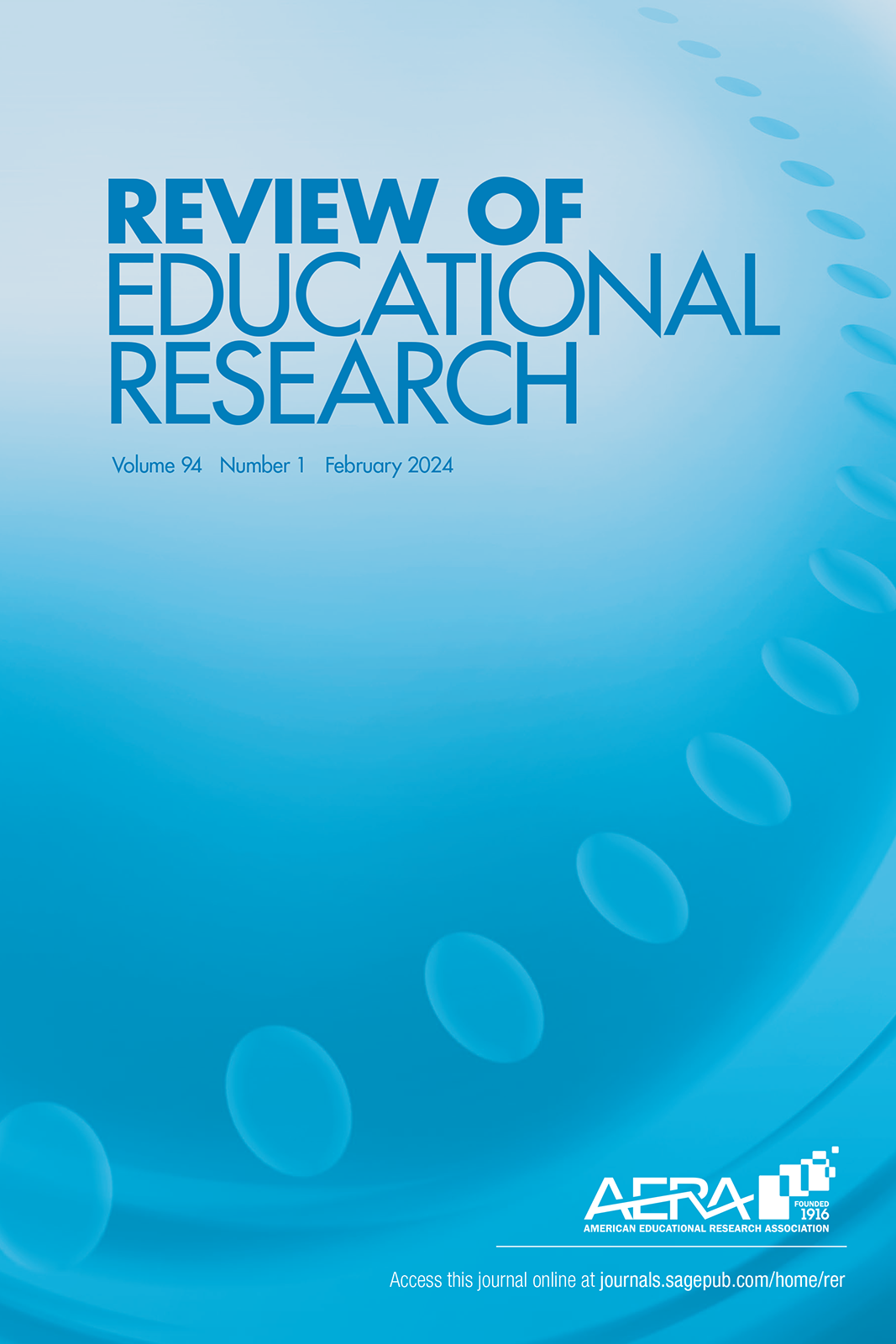形态学——通往高级语言的大门:语言少数民族儿童形态学知识的元分析
IF 8.3
1区 教育学
Q1 EDUCATION & EDUCATIONAL RESEARCH
引用次数: 5
摘要
关于语言中最小有意义的单元,语素的知识,对于词汇和阅读理解至关重要。这项对43项研究的荟萃分析调查了少数语言儿童和多数语言儿童在社会语言形态知识方面的差异。在形态学知识方面存在中等到较大的平均组差异,有利于语言占多数的儿童。研究屈折知识(walk-walk,rose-roses)的研究报告的差异比研究衍生(共存,严重)和化合物(bluebird,强调)的知识的研究更大。使用口语测试和表达语言测试的研究比使用书面测试和接受语言测试的调查报告了更大的差异。这些发现表明,形态学是少数民族语言儿童的一个弱点。结合形态学教学提高一般语言能力和阅读理解的证据,研究结果表明,形态学可能是少数民族儿童语言干预的重要组成部分。本文章由计算机程序翻译,如有差异,请以英文原文为准。
Morphology—A Gateway to Advanced Language: Meta-Analysis of Morphological Knowledge in Language-Minority Children
Knowledge about the smallest meaningful units of language, morphemes, is crucial for vocabulary and reading comprehension. This meta-analysis of 43 studies examined differences in morphological knowledge in the societal language between language-minority and language-majority children. There was a moderate to large mean group difference in morphological knowledge in favor of the language-majority children. Studies that examined inflectional knowledge (walk–walked, rose–roses) reported larger differences than studies that examined knowledge of derivations (coexist, serious) and compounds (bluebird, highlight). Studies that used oral tests and tests of expressive language reported larger differences than studies that used written tests and tests of receptive language. These findings show that morphology is an area of weakness in language-minority children. Paired with the evidence that morphological instruction improves general language ability and reading comprehension, the results suggest that morphology could be an essential component in language interventions for language-minority children.
求助全文
通过发布文献求助,成功后即可免费获取论文全文。
去求助
来源期刊

Review of Educational Research
EDUCATION & EDUCATIONAL RESEARCH-
CiteScore
24.10
自引率
2.70%
发文量
28
期刊介绍:
The Review of Educational Research (RER), a quarterly publication initiated in 1931 with approximately 640 pages per volume year, is dedicated to presenting critical, integrative reviews of research literature relevant to education. These reviews encompass conceptualizations, interpretations, and syntheses of scholarly work across fields broadly pertinent to education and educational research. Welcoming submissions from any discipline, RER encourages research reviews in psychology, sociology, history, philosophy, political science, economics, computer science, statistics, anthropology, and biology, provided the review addresses educational issues. While original empirical research is not published independently, RER incorporates it within broader integrative reviews. The journal may occasionally feature solicited, rigorously refereed analytic reviews of special topics, especially from disciplines underrepresented in educational research.
 求助内容:
求助内容: 应助结果提醒方式:
应助结果提醒方式:


